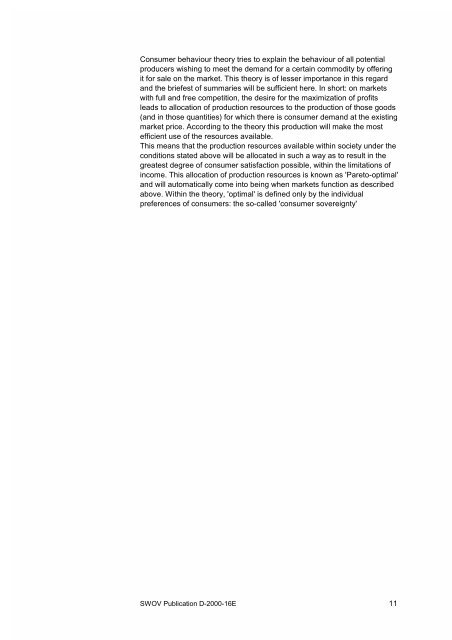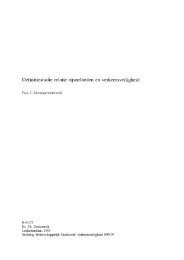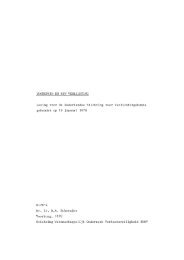Economic evaluation of road safety measures - Swov
Economic evaluation of road safety measures - Swov
Economic evaluation of road safety measures - Swov
Create successful ePaper yourself
Turn your PDF publications into a flip-book with our unique Google optimized e-Paper software.
Consumer behaviour theory tries to explain the behaviour <strong>of</strong> all potential<br />
producers wishing to meet the demand for a certain commodity by <strong>of</strong>fering<br />
it for sale on the market. This theory is <strong>of</strong> lesser importance in this regard<br />
and the briefest <strong>of</strong> summaries will be sufficient here. In short: on markets<br />
with full and free competition, the desire for the maximization <strong>of</strong> pr<strong>of</strong>its<br />
leads to allocation <strong>of</strong> production resources to the production <strong>of</strong> those goods<br />
(and in those quantities) for which there is consumer demand at the existing<br />
market price. According to the theory this production will make the most<br />
efficient use <strong>of</strong> the resources available.<br />
This means that the production resources available within society under the<br />
conditions stated above will be allocated in such a way as to result in the<br />
greatest degree <strong>of</strong> consumer satisfaction possible, within the limitations <strong>of</strong><br />
income. This allocation <strong>of</strong> production resources is known as 'Pareto-optimal'<br />
and will automatically come into being when markets function as described<br />
above. Within the theory, 'optimal' is defined only by the individual<br />
preferences <strong>of</strong> consumers: the so-called 'consumer sovereignty'<br />
SWOV Publication D-2000-16E 11
















